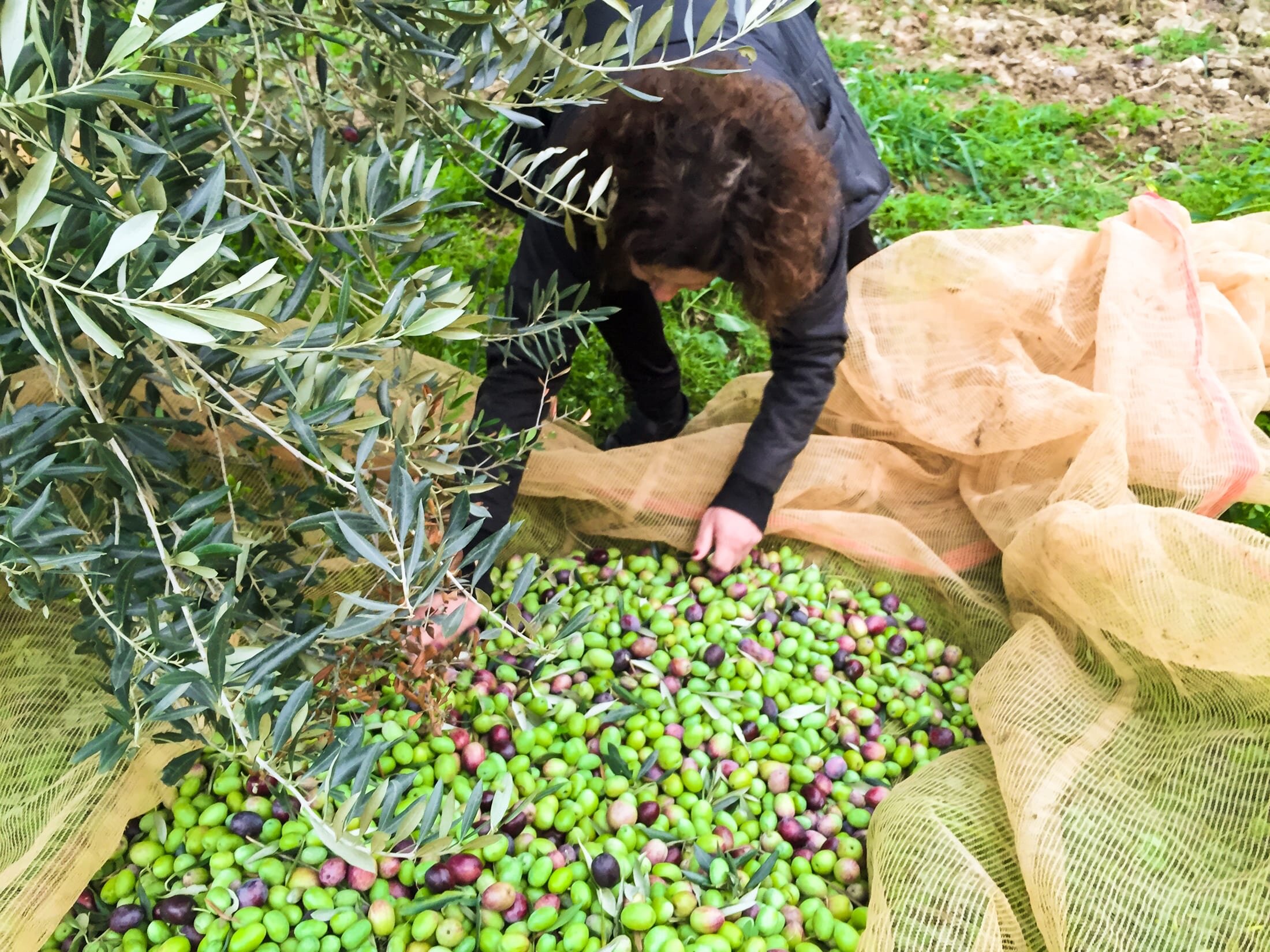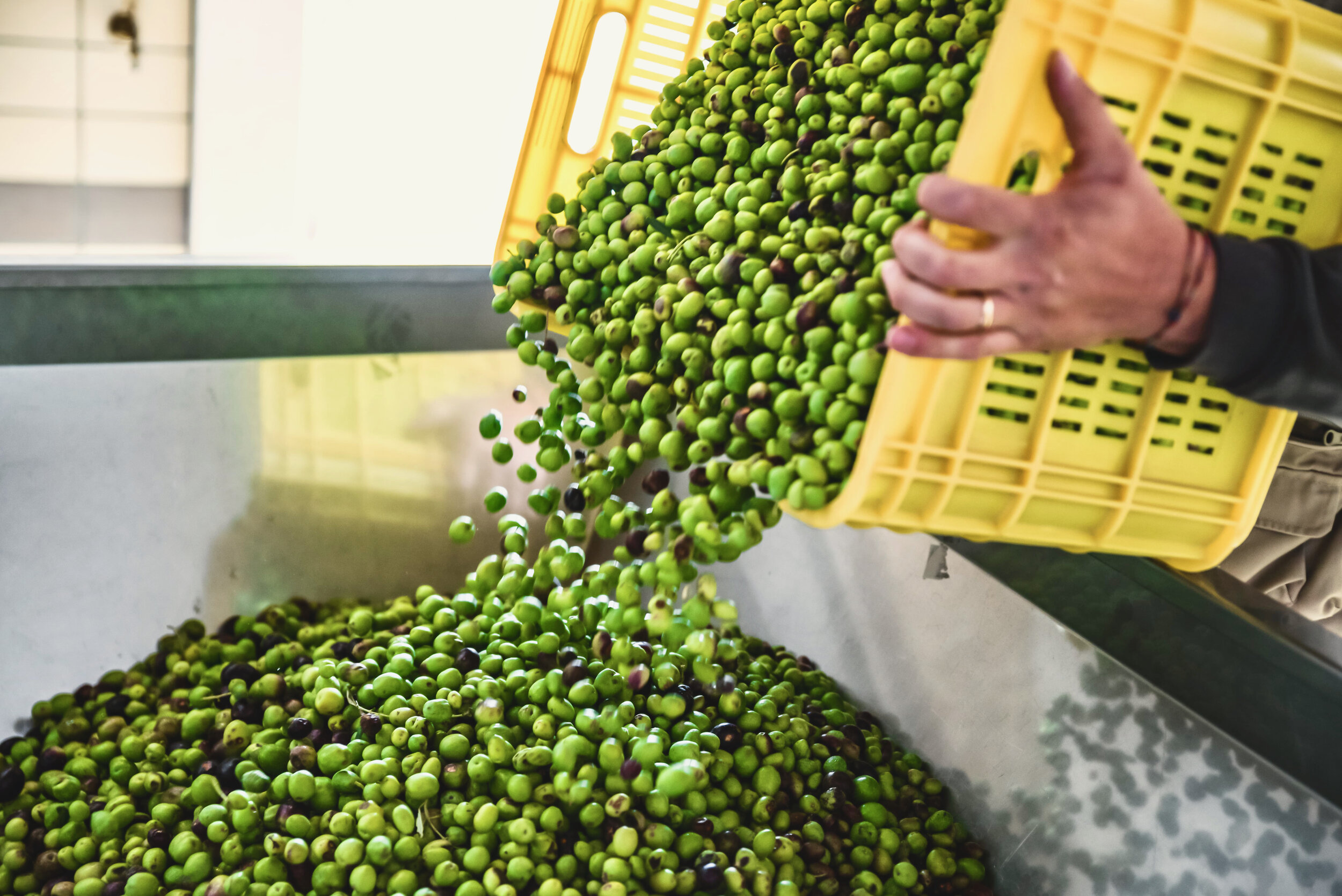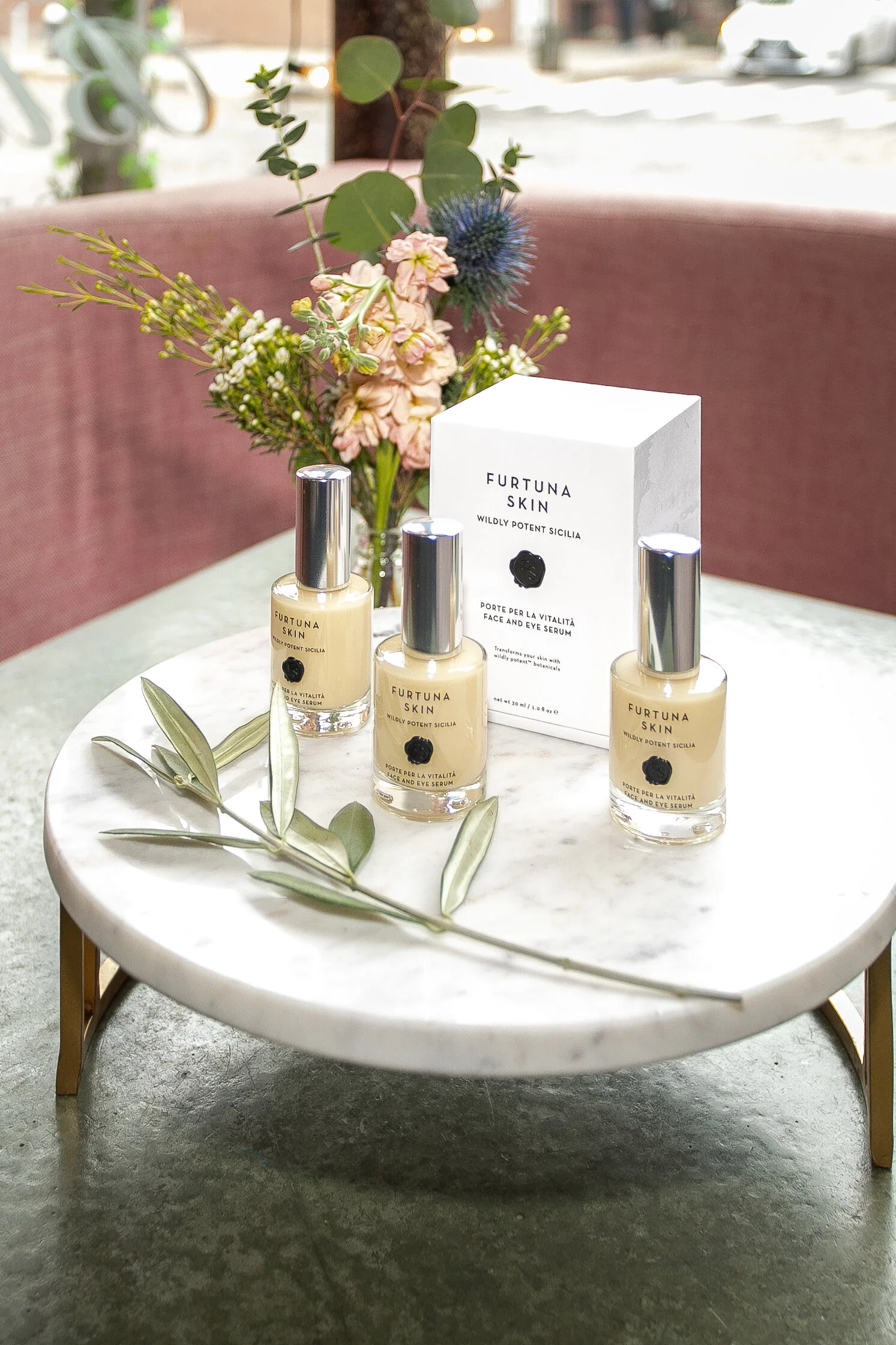Meet the Co-Founders Disrupting the $532-Billion Beauty Industry With a High-Performance Plant-Based Skincare Brand
We know how daunting it can be to start a new business, especially if you’re disrupting an industry or creating an entirely new one. When there is no path to follow, the biggest question is, where do I start? There is so much to do, but before you get ahead of yourself, let’s start at the beginning. To kick-start the process and ease some of those first-time founder nerves, we’re asking successful entrepreneurs to share their stories in our series, From Scratch. But this isn’t your typical day-in-the-life profile. We’re getting into the nitty-gritty details—from writing a business plan (or not) to sourcing manufacturers and how much they pay themselves—we’re not holding back.
Valued at $532 billion and counting, the beauty industry is on an upward trajectory that doesn’t appear to be letting up anytime soon. Despite the break-neck speed that’s driving the market forward, there’s one skincare brand that’s doing things differently—Furtuna Skin.
Built on a platform of radical transparency, Furtuna Skin is disrupting the industry by creating high-performance, plant-based products that are made with sustainably sourced ingredients—and their approach is paying off. The brand has already developed a cult-like following, including celebrity estheticians like Gina Marie and Shani Darden, to name-drop just a few high-profile Furtuna Skin devotees.
Ahead, Furtuna Skin’s co-founders, Agatha Relota Luczo and Kim Walls, break down how they built a high-performance, plant-based skincare brand from scratch, including why they didn’t write a business plan and what made them decide to go the self-funded route.
CREATE & CULTIVATE: Take us back to the beginning. How did you both meet and what was the lightbulb moment for Furtuna Skin?
AGATHA RELOTA LUCZO: We met first while working on creating organic, natural topical health remedies for our children (which is now our Bambini Furtuna brand). The more time we spent together, the more ideas we had for unique and powerful skincare products for adults. The plants on my family farm in Sicily were so powerful, so potent, that it became abundantly clear to us pretty immediately that we could create something special with these plants. Something groundbreaking that could redefine the very meaning of “clean beauty” by combining ancient wisdom with modern science using high potency organic plants to give beauty lovers high-performance results that they deserve from clean products—something we both struggled to find.
We’re both fiercely driven women who are passionately committed to achieving the best outcomes. We had unique areas of expertise that allowed each of us to bring something to the table that the other couldn’t. And we liked each other. A lot. There wasn’t much of a conversation about whether or not we were going to create Furtuna Skin. It happened because it couldn't not happen. In a way, Furtuna Skin willed itself to live through us. The brand took us both by the heart and that was that. We were off.
C&C: Did you write a business plan?
KIM WALLS: We had an aligned five-year vision for the brand within a few weeks of deciding we were doing it. With that, we created a product roadmap and began investigating the time and costs that would be associated with bringing those products to life. Our approach was the very definition of a product-driven company. From there, we created a financial model based on our strategy and assumptions. We still use that model today… updating it as we learn. We didn't write a traditional business plan but we agreed on targets to hit and milestones to measure our performance. The bottom line for us has always been that we wanted to create products that would be truly transformational.
C&C: How did you come up with the name Furtuna Skin?
AGATHA RELOTA LUCZO: It was important to us to keep the name “Furtuna” as part of our estate’s name where we forage our ingredients. My husband’s grandparents lived on the farm in Sicily before they moved to the United States. They used to say “Bona Furtuna!” to him with great love and excitement when they would say goodbye to each other. Bona Furtuna means “good luck or good fortune” in Sicilian. His Nona Rose was the inspiration for the farm’s name—La Furtuna Estate. The word “Fortune” is “Fortuna” in Italian, but in Sicilia, it is Furtuna. Our name honors our family, the powerful medicinal heritage of the land, and the great people who are there now and who came before us.
C&C: What were the immediate things you had to take care of to set up the business?
KIM WALLS: All of the standard business pieces like domain, trademarks, social channels. We did all of those things but we didn’t let the logistics distract us from the more complex and challenging work of creating transformational products. We’ve seen too many people get caught up in the logistical details of it all and forget to think big. They shoot themselves in the foot by spending too much time on things that don’t matter unless you actually have a business. That said, intellectual property is important. We invested in locking down our trademarks in all critical markets because we knew that we wanted to create the opportunity for people around the world to experience the seemingly magical power of wildly potent ingredients.
C&C: What research did you do for the brand beforehand?
KIM WALLS: When it came to the plants and the performance of those plants to deliver unparalleled skincare results, we went all-in on research from day one. We knew that what we were setting out to do was incredibly complex, hadn’t been done before in the industry, and that there would be a great many challenges to overcome in the process. We surround ourselves with experts—like Mimmo who is the PhD botanist and biologist on the farm—to help answer the many questions we needed to answer, and to help figure out what additional questions we should be asking. We worked with pharmaceutical experts, ultrasound equipment experts, biochemists, nutritionists, and clinicians with extensive knowledge and niche expertise in a great many areas of science.
We spent almost all of our time in the early days researching and thinking about the details that would bring our full vision to life. We began with plants growing from the earth to transform them into skincare ingredients, which we then turned into skincare formulas… while also working on the fonts, textures, colors, coatings, materials, brand stories, and overall feel of Furtuna Skin. There was an enormous amount of research. We would each do big bursts of work in our respective areas of expertise and then come back together to share and refine our concepts by truly listening to each other’s thoughts, perspectives, and feedback… and then do it again. And again. And again.
We relied on Slack, Dropbox and Google Drive for a long time, and then moved onto programs that would allow for more complicated data associations like the Gantt charts in Asana and the cross-indexing of data and imagery that you can create in programs like Swivvel and Airtable. When you’re starting out though, there’s nothing better than a good old fashioned phone call to work through it all together.
“We approach our partnership like a marriage. Fundamentally, we care about each other and respect each other. When you and your partner want the same BIG things, then the little things don’t matter as much.”
C&C: How did you find the manufacturer/production facility that you use What advice do you have for other founders looking for a trustworthy manufacturer?
KIM WALLS: It is an absolutely monumental task to find the right labs, fillers, testers, designers, teammates, partners, agencies, sources of materials, and more, then to conduct them in alignment so they work together like an experienced orchestra. The difficulty of this process cannot be underestimated. There is no right answer to “who’s right for everyone.” The trick is to truly understand your needs, and then find partners who are excited to fulfill those needs.
In our case, we needed partners who had world-class track records in creating innovative skincare formulas using new organic ingredients and new processes. We needed people who had the right kind of experience—from pharmaceutical to nutraceutical—who were such deeply entrenched experts that they were comfortable in the space of experimentation and who were willing to dedicate countless hours to bringing together myriad unknowns to create finished skincare products that hit new levels in clean beauty and that would deliver on the results that they promised, from brightening the skin all over to instantly lifting and plumping fine lines around the lip and eye area.
C&C: Did you self-fund the company? Did you do a friends and family round? Or did you raise seed money or initial investment money?
AGATHA RELOTA LUCZO: We’re self-funded. We’ve both been involved in VC-, PE-, and F&F-backed businesses in the past, but we wanted to get Furtuna Skin off the ground ourselves because we wanted to ensure that we would have the time and space needed to develop the highest quality, most effective skincare ingredients from our organic estate in Sicily. For many years, we were working with a complex matrix of unknowns that, because we weren't being pushed for time in the early days, have now resulted in groundbreaking products that we are proud and honored to see empowering our clientele with a deep sense of transformational beauty.
C&C: How much did you pay yourself, and how did you know what to pay yourself?
KIM WALLS: Every situation is different, and there’s no one right way to go about determining when and how much to pay yourself. BUT, you must pay yourself. Even if the number is small, the mental effect is huge. For most people, it is a psychological fact that if they aren’t being paid with at least some cash, they will not give their greatest effort despite best intentions.
La Furtuna Estate in Sicily




C&C: How big is your team now, and what has the hiring process been like? Did you have any hiring experience? What advice can you share?
KIM WALLS: Not including us, our current team is nine people. We both have hiring experience from previous work. We created an organizational chart and have stayed pretty true to that chart so far. Putting in the time upfront to understand which skillsets we needed to find to create and market groundbreaking products helped us think through the roles we need to bring our dream to life. For any given position, we collaborate with internal team members to develop a job description and then begin the search. It is very important to us that we hire to a role, but we do also shape and reshape roles around the people we hire. In the early days, growing a team is like building a jigsaw puzzle, you might not know where one piece fits until another is in place. We want our people to be set up for success, and sometimes that means being flexible about the role each person plays in the company. When starting our company, it was critically important for us to hire people who thrive in a fast-paced environment where things can change quickly, and any team member might need to wear multiple hats. Because we outline the job descriptions and start with an understanding of how people will fit into our world both in the immediate term and the long term, we hire with the future in mind. Equally important to our peoples’ skill sets, we hire for energy. If the “vibe” isn’t there, then we keep searching regardless of the list of accomplishments a person may bring to the table.
We recently learned that the ideal number of people to interview any candidate is four. Data supports that if four team members think someone is a good fit for the role, then the candidate is more likely to be successful in that role. Once we had four people in the company, we started following that rule of thumb. The last bit of advice here is that you probably don’t need to bother checking the references that a candidate provides to you unless it is an extremely junior hire. Leverage your network of friends or even strangers to talk with people that have worked with your candidate before. That’s how you can learn the most about your candidate, and whether or not that person's particular quirks are going to be complimentary with your team… or not.
C&C: As co-founders, how have you developed a good working relationship? What tips can you give to other business partners trying to make it work?
AGATHA RELOTA LUCZO: We approach our partnership like a marriage. We’ve both been happily married for a long time, so we have practice doing this. Fundamentally, we care about each other and respect each other. We let each lead in the areas we’ve entrusted to each other. (I lead the creative function, and Kim leads the executive function.) Our partnership is part of what makes the work feel good and the journey worth taking. Tips for others would be to say the hard things. Be honest with yourself and your partner. Be willing to give in and to see when you are wrong. Make the big decisions together by taking time upfront to thoroughly talk through your perspectives. If your roles are clearly defined in the beginning and you butt heads about something, then if it isn’t your lead role, give in. Let it go, and do it because you remember that you entrusted this person with the responsibility to lead where they are leading and that you share a common vision and goal. When you and your partner want the same BIG things, then the little things don’t matter as much.
“In the early days, growing a team is like building a jigsaw puzzle, you might not know where one piece fits until another is in place.”
C&C: Did you hire an accountant? Who helped you with the financial decisions and set up?
KIM WALLS: Oh yes. Business is business. We had a freelance bookkeeper and accountant very shortly after we started spending money. As is true with most things in life, we knew that if our foundation wasn’t strong, we wouldn’t be able to focus our attention on what matters most to us—creating beautifully clean and effective, high-performance skincare that brings a deep sense of transformational beauty into the lives of our clientele.
C&C: What has been the biggest learning curve during the process of establishing a business?
KIM WALLS: It is SO hard to wait sometimes. Most skincare products take anywhere from six months to a year to create and get to market. In our case, we start with people on the land who are wild foraging many of our ingredients. The extra time it takes to forage and then turn those plants into skincare ingredients, then test them for quality, purity, and effectiveness before we can even begin to use them to make skincare products can feel like forever by comparison to how most products are made in our industry. After we had our first finished formula, we were so excited to share it with people that we rushed to order some components (caps for our bottles) that we didn’t truly love. In the end, we scrapped those and made our own custom caps that we do truly love. In that haste, we created a lot of complexity for ourselves that we probably shouldn’t have. The old saying, “patience is a virtue,” is one that we need to remind ourselves of constantly.
C&C: How did you get retailers to start stocking your product? Were you told “no?” What advice can you share?
AGATHA RELOTA LUCZO: We launched on our own site and with our friend and partner Shani Darden, an esthetician who we respect immensely for her extensive knowledge, integrity, and the results she brings to her clientele. Retailers are calling us now, so you’ll start seeing us more and more in 2020.
When it comes to choosing retail partners, it is all about fit and sell-through. Sometimes it takes a long time to make retail happen, but if the fit is there, the product is great and you can drive customers to their stores to buy your products, then magic can happen. Most fundamentally, most retailers care about two things: a) will you drive traffic into their store, and b) will enough of the customers they already have want your products to make it worth their shelf space. Most retailers have metrics that they adhere to—like $10K per week in sales of any brand, for example. Find out what their metrics are and prove that they will sell enough of your product for them to exceed their metrics. With that, you’ll probably get the chance to partner with the retailers you want.
C&C: Do you have a business coach or mentor? How has this person helped? Would you recommend one?
AGATHA RELOTA LUCZO: We are unbelievably lucky to have one of the most successful businessman in history (literally) on our board, so when he talks we listen. We always seek outside advice to check our big assumptions. Mentors have been pivotal to the success that each of us have experienced in our lives. Most of the time, it isn’t a planned relationship. People who love to mentor get as much out of that relationship as the mentee because they love to teach and share their knowledge. If you want a great mentor, be someone who is worth mentoring. Come with great questions, show progress, listen, and act accordingly, tell your mentor how you have benefitted through their advice by sharing specific progress with them. They will probably get as much joy from your success as you do. Sharing progress that is partially attributable to your mentor will remind them of the value they are getting out of the relationship and make them want to give you more.
C&C: How did you promote your company? How did you get people to know who you are and create buzz?
KIM WALLS: We both knew a lot about marketing when we started, but marketing changes at light speed. It is important to both of us to stay relevant in our knowledge and to bring rockstars onto our team who focus exclusively on the most current forms of marketing at any given time. For example, we partnered with Shadow PR, an outstanding agency, and have leaned on their expertise and relationships. We also have relationships of our own from working in the beauty industry for decades. We work with celebrity estheticians like Gina Marie and Shani Darden, who have been incredible. They use our products in their facials on their amazing clients, and we’re also lucky to have the support of VIP friends like Jamie Greenberg and Lauren Roxburgh who share their love for the benefits of our products with their clientele too.
On the question of marketing spend as a percent of revenue, the rule of thumb in our industry is to spend about 15% of revenue on marketing to scale. These days, the average percentage is increasing. In the early days, the vast majority of cash in a consumer brand is spent on marketing because you probably don’t have much (or any) revenue to speak of, so your spend probably can’t be considered as a percent of revenue. The best advice we could give is to create reasonable goals for your business and then figure out what it is going to take to hit those goals and how much it will cost to do the things you think you need to do to hit the goals. Measure. Repeat. Measure. Repeat.
“If you want a great mentor, be someone who is worth mentoring. Come with great questions, show progress, listen, and act accordingly, tell your mentor how you have benefitted through their advice by sharing specific progress with them.”
C&C: What is one thing you didn’t do in the setup process, that ended up being crucial to the business and would advise others to do asap?
KIM WALLS: We have started other businesses in the past, and we learned a lot of things the hard way, so we were in a more informed position this time around. We've made fewer mistakes, thankfully! From experience in our prior lives, we’d share that you must get comfortable with the basics of finance, at the very least, or you will definitely hurt yourself. Too many entrepreneurs underestimate the importance of nailing these essentials. If you don’t already, then learn to truly understand your balance sheet, P&L statement, and cash flow…. and maybe, more importantly, learn to understand the business drivers that most influence the outcomes represented by those basic documents for your endeavor.
C&C: For those who haven’t started a business (or are about to) what advice do you have?
KIM WALLS: Don’t get decision paralysis, and recognize that progress takes lots of different forms. There’s no one right way to accomplish what you want to accomplish. Recognize that it might be insanely hard to do what you want to do and accept the challenge in full light. When you get stuck (which you will) move forward no matter what. Look hard in the mirror when you make a mistake and set up a specific process so you don’t make the same mistake twice.
C&C: Anything else to add?
AGATHA RELOTA LUCZO: Yes! We need more and more women out there living up to their full potential and exceeding their self-imposed personal limits. Go hard at your dream, and keep going. When one dream doesn’t pan out, pick a new one. Enjoy your feeling of purpose and drive hard.
Our friends at Furtuna Skin were nice enough to share a giveaway with Create & Cultivate readers!
One lucky reader will receive a year’s supply of Furtuna Skin products. Simply fill out the form below to enter to win. *U.S. residents only.* The winner will be chosen randomly and contacted via email. Good luck!














